Raksha Bandhan, one of India’s most cherished festivals, beautifully celebrates the eternal bond between brothers and sisters. This ancient Hindu festival transforms simple threads into powerful symbols of love, protection, and lifelong commitment. Every year, millions of families across India and the diaspora come together to honor this sacred relationship that transcends time and distance.
What is Raksha Bandhan?
Raksha Bandhan literally translates to “bond of protection” in Sanskrit. The festival centers around a beautiful ritual where sisters tie decorative threads called “rakhi” around their brothers’ wrists. This simple yet profound act symbolizes the sister’s prayers for her brother’s well-being and the brother’s promise to protect his sister throughout his life.
The festival represents much more than a religious observance. It embodies the timeless values of family unity, mutual respect, and unconditional love that form the foundation of Indian society. The rakhi thread becomes a sacred covenant that strengthens family bonds and reinforces the importance of sibling relationships in Indian culture.
When is Raksha Bandhan Celebrated?
| Aspect | Details |
|---|---|
| Date | Full moon day (Purnima) of Shravana month |
| Gregorian Calendar | Usually falls in August |
| 2024 Date | August 19, 2024 |
| 2025 Date | August 9, 2025 |
| Time | Most auspicious time is during daytime hours |
| Duration | One day celebration |
The festival follows the lunar calendar, which means the exact date varies each year in the Gregorian calendar. However, it consistently falls during the monsoon season, adding a refreshing backdrop to the celebrations.
Historical Origins and Evolution
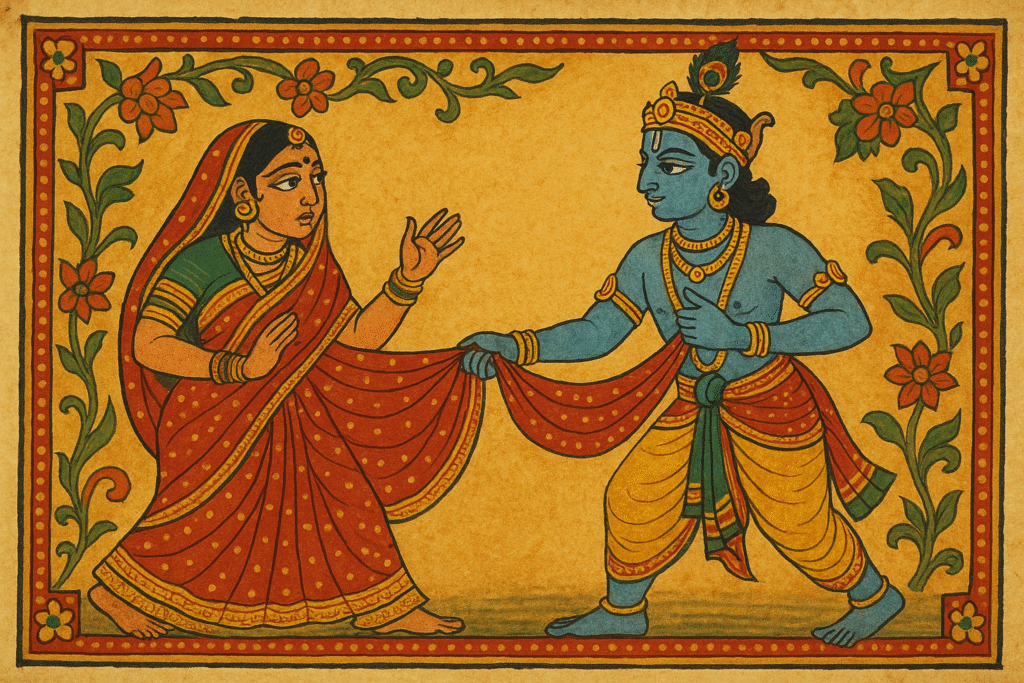
Ancient Beginnings
The roots of Raksha Bandhan stretch back over 5,000 years into ancient Indian history. The festival finds its earliest mentions in Sanskrit scriptures and Vedic texts, where it was originally known as “Raksha Sutra” or the thread of protection.
Legendary Stories
Several captivating legends explain the festival’s origins:
The Indra and Sachi Story: According to Hindu mythology, when the demon king Bali threatened the gods, Indra’s wife Sachi tied a protective thread around his wrist. This divine intervention helped Indra defeat Bali and protect the heavens.
Krishna and Draupadi: The Mahabharata tells of how Draupadi tore a piece of her sari to bandage Krishna’s wounded finger. Touched by her gesture, Krishna promised to protect her always. This legendary bond exemplifies the festival’s spirit of mutual care and protection.
Historical Accounts: During medieval times, Rajput queens would send rakhis to neighboring rulers, seeking their protection during times of war. This practice expanded the festival’s meaning beyond biological siblings to include protective relationships within the broader community.
Who Celebrates Raksha Bandhan?
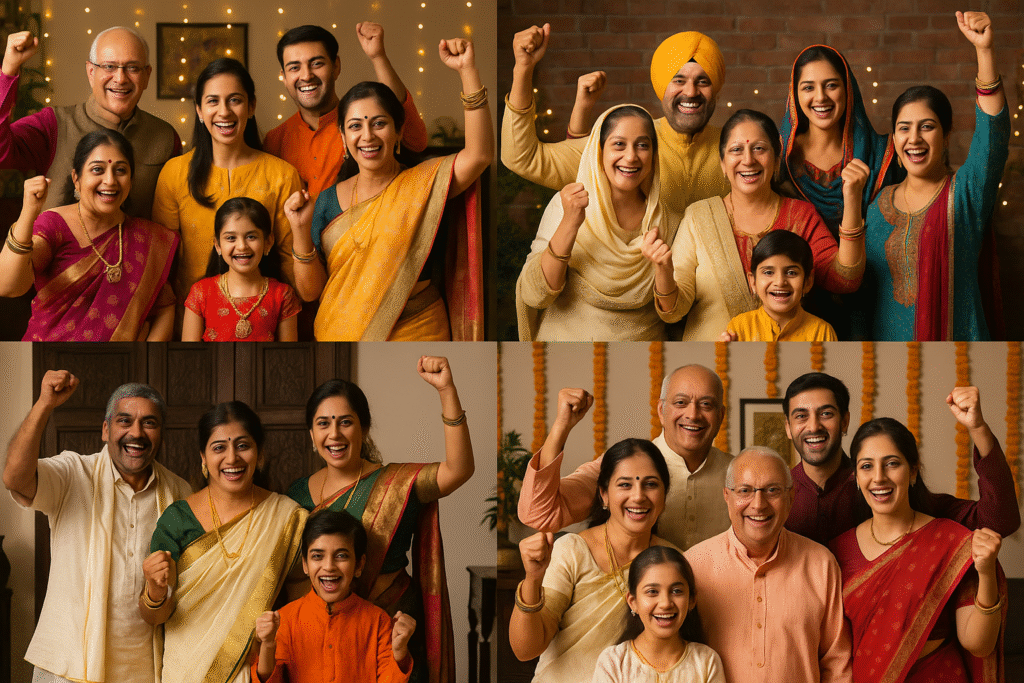
Primary Celebrants
• Hindu Families: The festival is primarily celebrated by Hindu communities across India and worldwide • Sikh Communities: Many Sikh families also observe this tradition, adapting it to their cultural practices • Jain Communities: Jains celebrate the festival with their own unique customs and interpretations • Regional Variations: Different states in India have their own versions and names for similar celebrations
Geographic Spread
Within India: The festival is celebrated throughout India, with particularly vibrant celebrations in:
- Northern states like Punjab, Haryana, Uttar Pradesh, and Rajasthan
- Western states including Maharashtra and Gujarat
- Central regions like Madhya Pradesh and Chhattisgarh
- Eastern states adapting the celebration to local traditions
International Celebrations: Indian diaspora communities worldwide maintain this tradition, celebrating in countries like the United States, Canada, United Kingdom, Australia, and the Middle East.
How is Raksha Bandhan Celebrated?
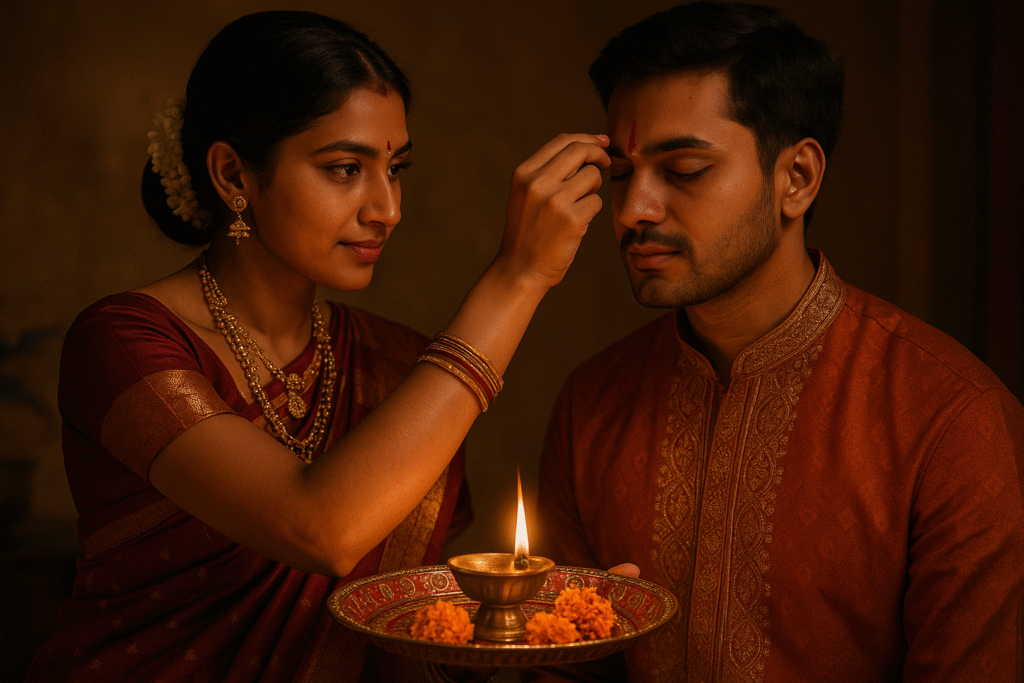
Traditional Rituals and Customs
The celebration follows a beautiful sequence of rituals that have been preserved for generations:
Morning Preparations: Families begin the day with ritual baths and wearing new or special clothes. Sisters prepare the rakhi thali (ceremonial plate) containing rakhis, sweets, rice, kumkum (vermillion), and a diya (oil lamp).
The Sacred Ceremony: The heart of the celebration involves the sister performing aarti (prayer ritual) for her brother, applying tilaka (sacred mark) on his forehead, and tying the rakhi around his wrist while reciting prayers for his long life and prosperity.
Exchange of Gifts: Brothers reciprocate by giving gifts to their sisters, often money, jewelry, or items they’ve been wanting. This exchange symbolizes the brother’s commitment to his sister’s happiness and well-being.
Feast and Celebration: Families conclude the ceremony with special meals featuring traditional sweets like ladoos, barfis, and regional delicacies.
Modern Adaptations
Contemporary celebrations have evolved to include:
• Virtual Celebrations: Technology enables long-distance siblings to participate through video calls • Rakhi by Post: Sisters send rakhis through mail when physical presence isn’t possible • Community Events: Temples and cultural organizations host group celebrations for those away from family • Extended Relationships: The festival now includes cousin relationships, close friends, and even neighbors
Regional Variations
| Region | Local Name | Unique Features |
|---|---|---|
| West Bengal | Rakhi Purnima | Combined with Jhulan Purnima celebrations |
| Rajasthan | Raksha Bandhan | Elaborate ceremonies with traditional folk songs |
| Maharashtra | Rakhi Pournima | Includes special coconut offerings |
| Gujarat | Raksha Bandhan | Features traditional Gujarati sweets and delicacies |
| Punjab | Rakhi | Celebrations often extend to Sikh gurdwaras |
Cultural Significance and Values
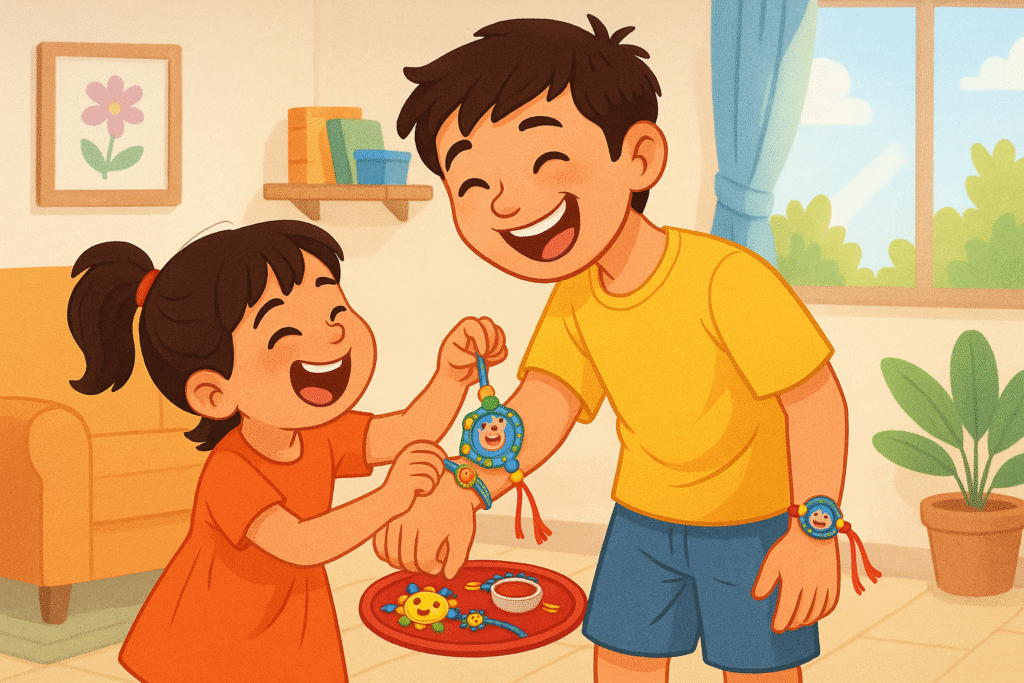
Strengthening Family Bonds
Raksha Bandhan serves as an annual reminder of the importance of family relationships in Indian society. The festival reinforces values that are central to Indian culture:
Mutual Responsibility: The ceremony emphasizes that relationships involve mutual care and responsibility. While the brother promises protection, the sister offers her prayers and blessings.
Respect for Women: The festival highlights the honored position of women in Indian society and the responsibility of men to ensure their safety and dignity.
Family Unity: By bringing families together annually, the festival helps maintain strong family connections across generations and geographic distances.
Social Impact
The celebration extends beyond individual families to create broader social benefits:
• Community Bonding: Neighborhood celebrations foster community spirit and social harmony • Cultural Preservation: The festival helps maintain Indian cultural identity, especially among diaspora communities • Economic Activity: The celebration generates significant economic activity through rakhi sales, gift purchases, and special food preparations • Charitable Giving: Many families extend the spirit of protection to charitable activities and community service
Modern Relevance and Future
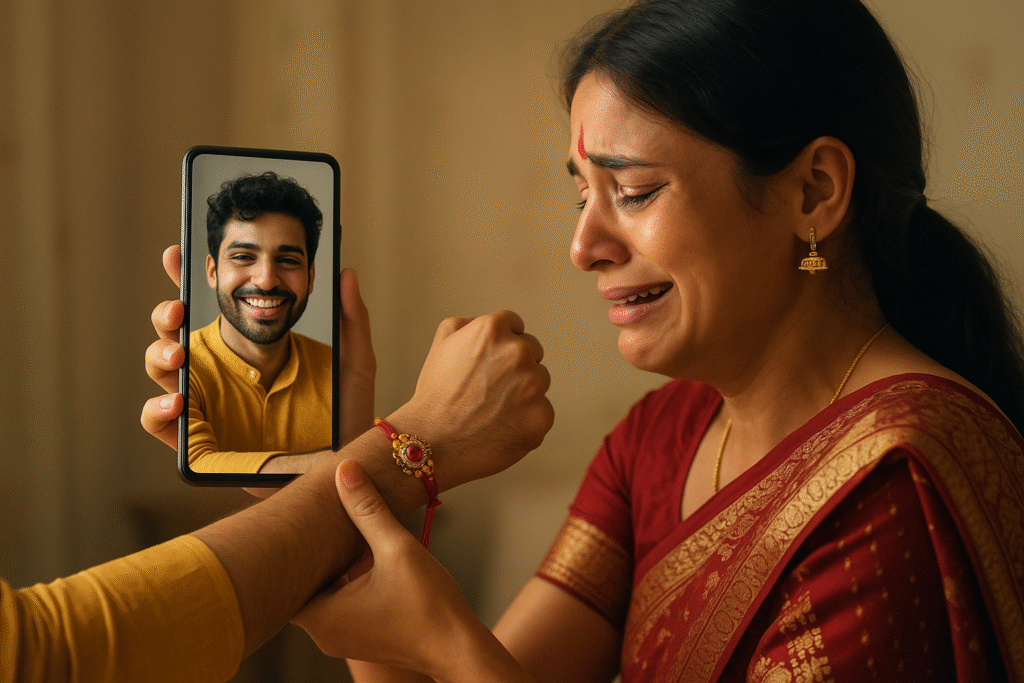
Contemporary Challenges and Adaptations
As Indian society evolves, Raksha Bandhan continues to adapt while maintaining its core significance:
Gender Equality: Modern interpretations emphasize mutual protection and support rather than one-sided responsibility, reflecting changing gender roles in contemporary society.
Digital Age Celebrations: Technology has revolutionized how families celebrate, making it possible for siblings separated by continents to participate meaningfully in the festivities.
Environmental Consciousness: Growing awareness about environmental impact has led to eco-friendly rakhis made from biodegradable materials, replacing synthetic threads and decorations.
Educational and Cultural Value
The festival serves important educational purposes:
• Teaching Values: Parents use the celebration to teach children about family responsibility, cultural heritage, and the importance of maintaining relationships • Cultural Identity: For Indian families living abroad, the festival becomes a crucial tool for preserving cultural identity and passing traditions to future generations • Interfaith Understanding: The festival’s universal themes of love, protection, and family bonds resonate across religious and cultural boundaries
Conclusion
Raksha Bandhan represents far more than a single day of celebration. It embodies the timeless Indian philosophy that views family relationships as sacred bonds that provide strength, support, and meaning throughout life. The festival’s ability to adapt to changing times while preserving its essential spirit demonstrates the enduring relevance of its core values.
As families gather each year to perform this ancient ritual, they participate in a tradition that connects them to thousands of years of cultural heritage while creating new memories for future generations. The simple act of tying a thread becomes a powerful affirmation of love, commitment, and the unbreakable bonds that define family relationships in Indian culture.
Whether celebrated in a traditional village home or a modern apartment thousands of miles from India, Raksha Bandhan continues to serve its fundamental purpose: strengthening the bonds that make families resilient, communities caring, and society compassionate. In an increasingly fragmented world, this festival reminds us of the profound importance of maintaining connections with those who matter most in our lives.



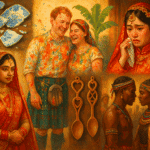


Leave a Comment